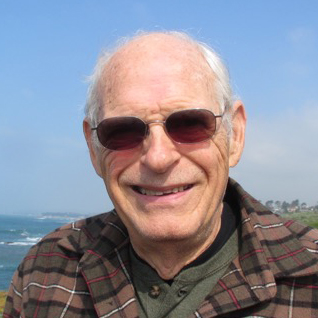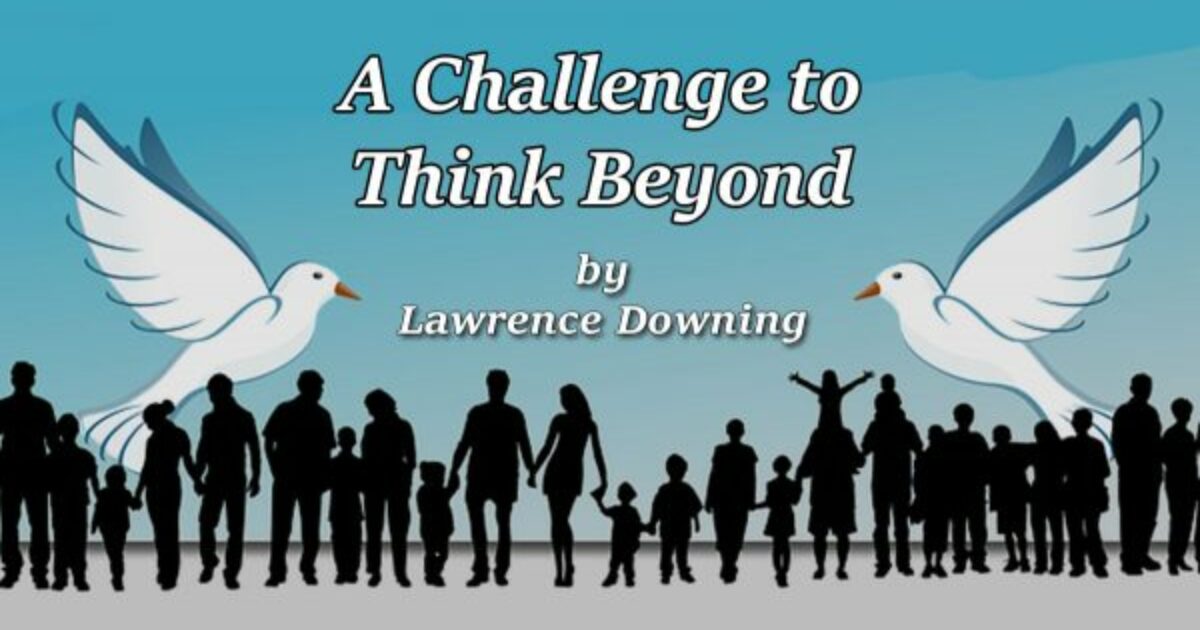A Challenge to Think Beyond
by Lawrence G. Downing, July 24, 2016: The Seventh-day Adventist church has been identified as one of the most ethnically and racially diverse religious organizations in America. On a typical Sabbath, in a typical urban congregation, representatives from numerous countries, races, ethnic and language groups will come together to sing, pray, talk, listen to a sermon and, in many congregations, share a meal. In any urban center one can expect to find congregations that are composed of specific language, racial or ethnic groups. What is less apparent is the lack of communication and interaction that takes place among these congregations. It will also be noted that the men and women who pastor these congregations do not associate among themselves, save on rare occasions when a conference official calls them together. The ethnic and language groups are commonly quite separate from and independent from the other parishes within their geographic area. I suggest there is need to change this strange estrangement. When two or more parishes commit to transcend those matters that divide, there is no limit to the possibilities that await. Amos 3:3 provides insight for those who are brave enough to consider such action: “Can two walk together unless they make an appointment?” Intentionality is consistent with what Christian community is about, but that is too simplistic. It is not enough to say we are a community bound by our common belief. The missing ingredient in this formulaic expression is the desire to make it happen. It is easier to continue on our well-established path of isolation, self-sufficiency and independence from other influences. A quick look about in what now threatens the fabric of our society is reason enough to challenge our present institutional behavior.
Reflect upon the events that have brought turmoil and destruction among those who live in urban centers across America. Adventist churches are not immune to the unrest, killing and destruction that has disrupted and traumatized our cities. Many of our churches are located at the epicenter where people have been shot. In response to the protest marches, some that have been peaceful, others not, civic and community leaders, along with President Obama, have called for a uniting of effort to understand one another. Our community and governmental officials have sent forth a call to listen to one another, get to know one another.
Fellow Adventists, take a listen to these desperate pleas. Recognize that our law enforcement, our community officials, are at their wits’ end. They have no answers to what is tearing at our social and community fabric. There is, however, a potential force that can make a powerful and effective response. The Adventist church occupies a unique position to address the cries for help—if we have the will, the determination, and the emotional and spiritual strength to reach across the barriers that now divide. Granted, this may well be a pie-in-the-sky, unrealistic suggestion. Why so? Think what we have going for us to make real such a fantasy as a diverse people learning to respect, listen and appreciate each other. We all can conjure a thousand reasons why our group is not the one to break the traditional behaviors. “Our group is the misunderstood.” “We are the needy ones.” “We are not accepted.” “We are seen as threats.” “They are trying to take over.” Every group and sub-group has its own precious and protected mantra. And for what purposes do we pull these tried and tested slogans out of our box of tricks? To assure we hold our place? To perpetuate a style? To provide job security? Each group has its own reasons to justify its practices; reasons that, in the face of the present crisis, crumble and dissipate into nothingness. We are capable of doing better!
Let me toss out some ideas, fantasy options, if you will. What if the pastors and other leaders of two or three congregations agree to meet together and covenant that they will meet at least once a month for at least ten months? Purpose: to begin to understand one another. To take time to listen and reflect. Will it be a smooth and easy discussion? Perhaps not. Productive? Hopefully.
Don’t like that idea? Try this one. Consider the possibilities should two or more congregations meet for a specified period of time to address and seek viable solutions to specific community needs or situations. Our churches are made up of people with a phenomenal mix of talents and skills. How can the churches begin to make better use of our gifted parishioners? As a given, when people come together this act will increase the probability congregations will learn to understand each other. (Or, to be honest, they will find affirmation for why they are separate one from the other.)
There are countless other practical, creative, and realistic methods that hold potential for diverse congregations to unite for common beneficial purposes. When women and men of good will take bold action to challenge stereotypes, settled behaviors and engrained attitudes the potential for beneficial results exists. The Adventist church is well positioned to provide leadership models that address the challenges set forth by community and civic leaders. We can give meaningful response to those who call for people to listen to one another and put their energy to productive, as opposed to destructive, behaviors. Has there been injustice that inhibits such approaches? You bet! Does there exist the possibility we today will look beyond the cruel and destructive former times? If we cannot transcend previous injustice, we can relegate the various gospel claims and promises to the dustbin!
Do not look to church officials to take leadership in the above ventures. They are occupied in their attempts to keep the wheels on the train. Let them do their thing. If meaningful response is to be made to the crises that now affect our neighborhoods it will be the people who live in the neighborhoods who make the difference. It may not be pastors who take leadership. There is risk involved and some pastors are uncomfortable taking risk, and that’s OK. But someone will have to reach across the divides that separate and intimidate. It will take someone who is willing to face ridicule, scorn, perhaps even isolation. The endeavor to bring people together is, I believe, worth the negatives; there will also be positives! When people listen to one another, expect good results. There will be people who improve their ability to walk in another person’s steps. We can learn to monitor and respond to the cries of despair and capitalize on the responses when hope is restored. There will be uncounted joy when a child perceives a brighter future. You bet there are rewards! Rewards beyond price. Ponder this: What organization is better equipped and empowered to restore civil behavior, respect and love to a community divided by anger, hopelessness and fear?

Lawrence (Larry) Downing, D.Min. is retired after more than 40 years as a parish minister serving Seventh-day Adventist churches on both coasts. His last parish was the White Memorial Church in Los Angeles. He was also an adjunct faculty in the School of Business and the School of Theology at La Sierra University. He is married to Arleen. Together, they have three grown children and six grandchildren. Larry and Arleen reside part time in Rancho Cordova, CA and in San Luis Obispo, CA.




